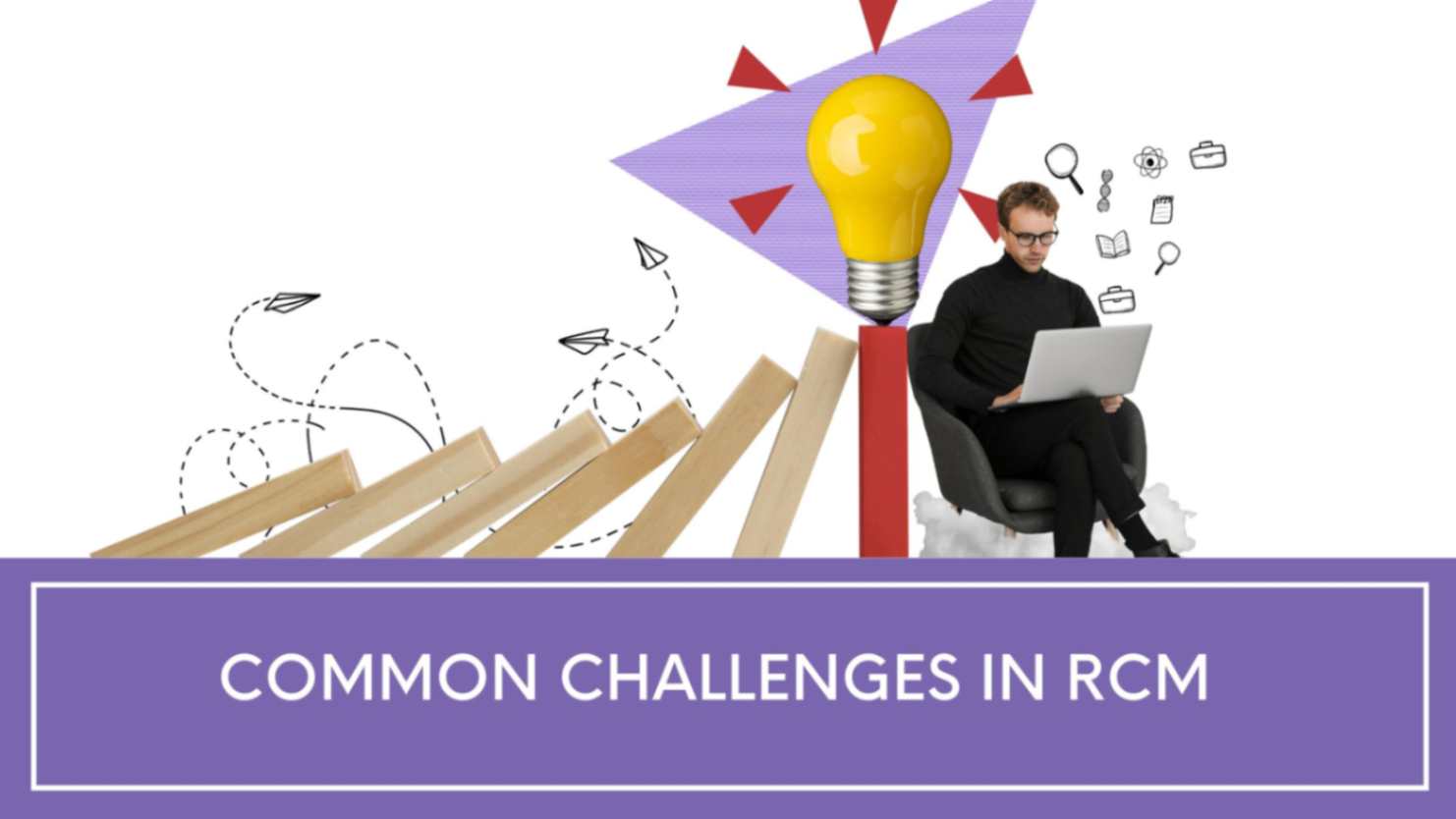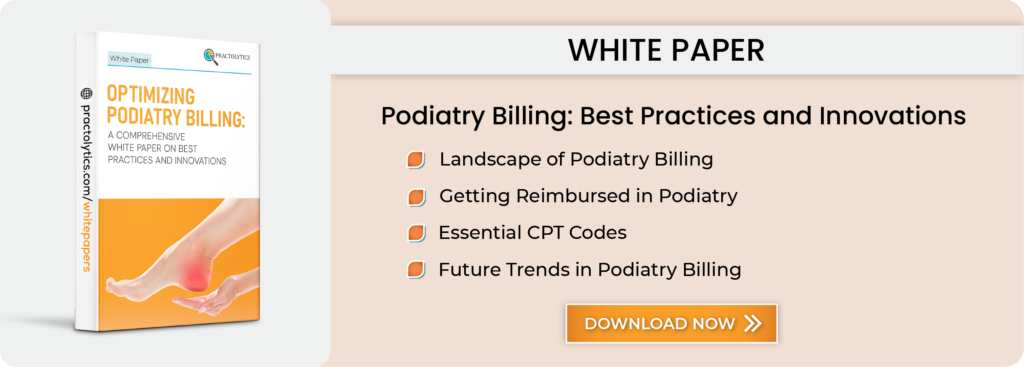Common Challenges in RCM and How to Manage Them?
It is important to maintain an effective Revenue Cycle Management for healthcare organisations to have smooth and healthy financial operations. RCM strategies helps in managing revenue, billing, and payments, which are the backbone of any healthcare practice or organization. Through an efficient RCM process, healthcare practices can emphasize delivering quality patient care without having to worry about financial sustainability.
Let us look into a quick fact that indicates the common challenges in RCM and how to manage them:
“ Around 30% of healthcare revenue loss stemmed from ineffective RCM processes. This loss outlines why a seamless RCM process is required to maintain steady revenue and prevent financial burden.”
Now, let us dig into some commonly occurring RCM concerns. These concerns often hold back the revenue streams and minimize patient satisfaction. Addressing these concerns can majorly enhance financial as well as patient outcomes.
Table of Contents
Challenge 1: Managing Complex Patient Data and Claims Processing
Healthcare organizations deal with large amounts of patient data and process several claims. When there is a huge amount of data, errors occur, resulting in revenue loss and delayed payments. Whether it’s a mistake in claims processing or patient data management, it costs too much money and time. It makes it tough for healthcare firms to get paid correctly and on time.
Let us look into data that highlights the seriousness of the issue:
“Almost 65% of claim denials root from mistakes in coding and patient data. This increased percentage indicates how expensive mistakes in data can be for healthcare practitioners.”
Leveraging automated tools can make claim processing and patient data entry more precise and quick. Automating helps minimize errors and enhances the likelihood of claim acceptance, minimizing denial rates and enhancing revenue.
Challenge 2: High Claim Denial Rates and Reimbursement Delays
Claim rejections and payment delays cause financial stress, making it tough for healthcare practices to maintain a steady cash flow. Claims often get delayed or denied due to coding mistakes, missing documentation, or insurance problems. Each denial can indicate revenue loss and more work to attain claim acceptance.
“Across the healthcare sector, nearly 10-15% of claims get rejected or denied. These denials cost a fortune for healthcare providers, which highlights the need to handle them better.”
To minimize denials, healthcare facilities must use a robust denial management approach. Regular education and training for staff. They must also incorporate real-time tracking for coding and claims processes to help avoid mistakes. This helps ensure faster claims acceptance and results in a steady cash flow with reduced revenue losses.
Challenge 3: Staying Compliant with Changing Regulations
Healthcare firms evolve rapidly, with new updates in regulations like ICD-10, MACRA, and HIPAA. These laws impact the processes of coding and billing. If healthcare firms don’t stay up-to-date, they could face major legal and financial concerns. Keeping up with these shifts can be difficult and needs constant attention.
Non-compliance with these regulations can result in major penalties, which can cost practices up to 1.5 million dollars every year. This increased cost makes compliance a significant aspect for healthcare practitioners.
Leveraging RCM software that delivers real-time insights on regulatory shifts can aid healthcare firms in maintaining compliance. In addition, continuous training for staff helps ensure everyone knows the existing regulations, minimizing non-compliance risks.
Challenge 4: Patient Payment Collection and Rising Out-of-Pocket Costs
More patients in the present scenario are responsible for a major portion of healthcare expenses caused by higher co-pays and deductibles. This change means healthcare providers must secure more payments directly from patients, which can be tough. When patients struggle to pay their bills, it impacts the ‘spractice’s revenue.
More than 70% of patients now encounter out-of-pocket expenses, which makes it difficult for timely payment collections.
Healthcare providers can bring patient-friendly payment initiatives, and digital payment options, and educate patients on their financial obligations. These steps can enable seamless bill payments for patients, helping providers maintain a proper income flow.
Challenge 5: Inefficient Prior Authorization Processes
Prior authorization is when healthcare providers are approved by an insurance firm before treatment delivery. This process is often manual and slow, causing patient care delays and additional work for staff. Prior authorization delays can also minimize revenue, as it slows down the treatment process.
“Nearly 86% of healthcare practitioners found prior authorization to be tedious, outlining the need for an improvement.”
Automated tools for prior authorization can speed up approval rates and minimize delays. Working with RCM providers who specialize in optimizing the process can also make a difference. This way, there is less paperwork and enhanced patient care.
Additional Strategies for Streamlining RCM Processes
Automation and AI: Artificial Intelligence and process automation can make RCM workflows seamless and quicker. AI helps to quickly process claims, identify possible denials before they occur, and alert healthcare staff on potential issues in real time. This helps avoid delays and minimizes the chances of denied or rejected claims. It improves cash flow and saves a lot of time.
Data Analytics: Data analytics enables healthcare providers to oversee RCM performance. By assessing trends and understanding where issues stem from, providers can make smart improvements and enhance efficacy. Analytics can also predict concerns so that practitioners make proactive measures to address them before they become major issues..
Conclusion: Overcoming RCM Challenges with Practolytics
In this article, we looked into some major RCM concerns healthcare providers encounter, from handling complex information to staying compliant with shifting laws. Addressing these concerns is important for the maintenance of a robust financial foundation and offering the best patient experience.
Practolytics is a leading-edge RCM partner who knows these challenges in revenue cycle management. We are equipped to help healthcare practices enhance efficiency, cut down denial rates, and maintain compliance effectively. Discover how Practolytics’ solutions can aid your practice in overcoming RCM pain points and attaining financial health easily. Discover what Practolytics has to offer now!
ALSO READ – How Technologies and Digital Tools are Reshaping the Credentialing Process in 2024?
Talk to Medical Billing Expert Today — Get a Free Demo Now!






